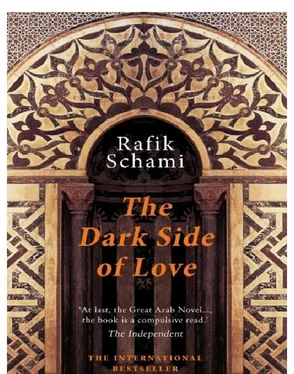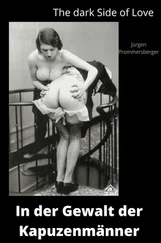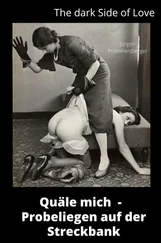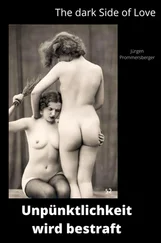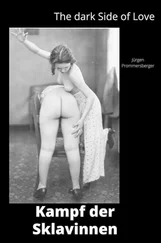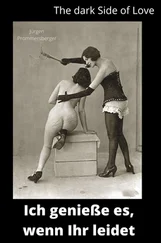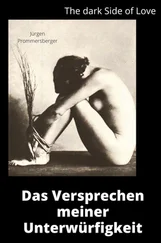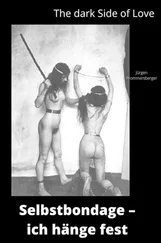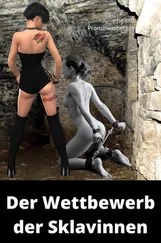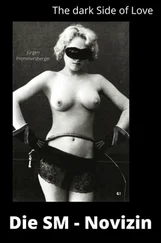“Yes, I’ve said all that before. And the Radicals threw me out because I refused to bear arms.”
“So they did,” agreed Mahdi, laughing. “When it came to fighting Israel you played the angel of peace, but you had no scruples about our President Amran. The kind of revolutionary I really like. But let’s get to the heart of the matter: I want to know what threads have been interwoven for twenty years to create unrest in Arabia and prevent our nation from taking its rightful place in the sun. You must tell me all about it, calmly and objectively. I believe you to be a very dangerous man, not even a communist, but a man commissioned to commit yet greater crimes. You must help me or I’ll be disappointed, and my boys here will be upset, and that will be really uncomfortable for you. So let’s begin with that monastery. What was your task there?”
“None at all. I didn’t know about the rebels at the time, I was only a naïve child. I didn’t want to go into the monastery. It was my father’s decision …” replied Farid quietly.
“If you’ll allow me, sir,” one of the thugs interrupted in the accent of the Mediterranean coast, “if you’ll allow me I’ll get him to spit out everything you want to hear, along with his teeth.” And both guards laughed. But Mahdi Said waved the offer away. “No, no, this is not what you coastal folk would call a little anchovy, this is a shark whose teeth and everything else will grow again. But I know his kind. Never fear, when I need someone I’ll send for you two,” he said, opening the metal box. Farid saw the syringe and two ampoules as well as a small flask containing some kind of powder. He heard the two thugs leaving the room. And the clerk who had been sitting in a corner almost motionless all this time, taking down every word of the interrogation in shorthand, closed his notebook and went out of the room without a sound as well. There were to be no witnesses, so other prisoners who were given injections had said. Farid felt paralysed by his fear. It was so overwhelming that for a moment he had no voice left, and his tongue was so dry that it stuck to his palate.
In panic, he saw death grinning at him from the syringe.
“I can’t tolerate injections, and a high dose of truth serum could kill me. Major, you know I haven’t been a member of any political party since I parted with the Radicals in the summer of 1967. I’ll sign whatever you like. I’m completely insignificant, I’ll never mingle with politics again.”
“Oh,” said Mahdi, “and who led the famous strike that’s ruined our reputation abroad for years, eh? Do you know that our beloved country is mentioned in the same breath as South Africa, South Vietnam, Persia, and Saudi Arabia? Israel would have paid millions to distract the world’s attention from the Golan Heights. Now the Zionists have what they wanted for free, and it’s your responsibility.”
Mahdi adjusted the reflective sunglasses that he always wore during interrogations. Many suspected it was his way of unsettling the men being questioned. Worst of all for Farid was that he could see himself reflected in both lenses and disappearing into the distance, as if his own reflection were distancing itself from him.
“It really was the first non-political strike of my life,” he repeated, “and it was done out of despair, because Abdulhamid Garasi treated us worse than animals. Under the supervision of the East Germans too. That was degrading. It really was the first non-political strike of my life. That’s why we were all united, even the young offenders and the criminals. The strike became political only because the camp leadership was corrupt and didn’t take us seriously. You know all that,” replied Fari, in fear, because he had scented death in the major’s words. But he still noticed his tone of voice turn submissive and pleading.
Mahdi was standing before him now. He perched on the edge of the desk and smiled at him, then he stood up once more and slowly walked past him. Farid did not turn around.
“Please, sir,” he whispered, as he felt Mahdi unbuttoning the cuff of his right sleeve and slowly rolling it up, “I have epilepsy because I had meningitis as a boy in the monastery, and it was left untreated for a long time, so my meninges are delicate, like … like Nagi’s. An injection could kill me. I beg you … please no injection. I’ll tell you everything.” His voice was barely audible now.
“Never fear, my boy,” said Major Mahdi in a loud and triumphant voice, as if to let the whole world know that within a few weeks he had cracked Farid Mushtak, the hardest case in the camp. “Never fear. I won’t hurt you if you’re a good lad,” he assured his victim.
Farid felt Mahdi’s cold hand stroking his bare arm. It was a slow movement of the fingers, as if they were carefully groping into a dark tunnel under his skin. Then the needle burned deep into his arm.
Complete darkness.
Laughter breaks and enters, opening mouths, hearts, and wounds.

TAD, MARCH 1969 — APRIL 1969
273. My Mother Says
When Farid thought back to it, the time between the victory over Captain Garasi in mid-March and the arrival of Mahdi Said in the first week of April had been the craziest period of his life. Hungry as the prisoners were for laughter, their lived unfolded and flowered. They hardly slept. Every evening there were stories, dramatic performances, accounts of films they had seen. Most vividly of all Farid remembered a biting monologue delivered in Hut 5 by the young actor and conscientious objector Hassan Bakkali. It had been received with boundless mirth.
“Reporting for duty, Captain Bulldog!” cried the actor, standing in the middle of the hut and exaggeratedly staring, as if under the influence of drugs.
“Captain, sir, why are we at war with Israel? She has nothing against it, my mother says, and I’m not asking because I’m scared, we’d just like to know why we have to die. If the Israelis are stronger than us then they’ll slaughter us. Is it any fun, starting a war against an enemy with superior forces when you’re weak and stupid yourself? No, my mother says!
“Our people live in a Paradise of freedom and democracy. Well, it says so in all the school textbooks, and we hear it day after day on the radio too, so even the illiterate know. The British, Americans, Germans, Swedes, and most of all the Swiss really envy us our democracy. They come here pretending to be tourists, to learn how real democracy works and see what the Syrians are doing with all their freedom. Only my mother won’t believe it. She’s always saying: if problems were dogs, you’d have to buy pebbles from the jeweller’s. But she learned that saying about the pebbles from our neighbour Mustafa. You see, captain, sir, Mustafa was a good traffic cop. His wife Sahra was the most beautiful woman in our quarter. And one day, when he stopped the Interior Minister’s son for doing a mere hundred and twenty kilometres an hour in the city traffic and asked for his driver’s licence, he was beaten up by the seventeen-year-old lad and fired by his father next day. So now there’s the pair of them, Mustafa and Sahra, left without any money, and so angry that they keep fighting each other. One day, when the man noticed how beautiful his wife was, he had an idea: he’d stop beating her, make up her face, and offer her to a few rich men. She was happy to go along with this plan, just to be rid of her husband for a few hours and stuff herself with the kind of sweetmeats she’d only ever seen in the display windows of confectioners and delicatessen stores.
“From now on they lived a peaceful life, because Sahra brought home more money than thirteen policemen earn, and Mustafa kept house very well and played backgammon with pensioners. People said he wore the horns, but to be honest, he didn’t mind that. He and his wife laughed at their neighbours. And it was when someone said the two of them were a problem to the whole quarter that Mustafa said that about the dogs and the pebbles.
Читать дальше
